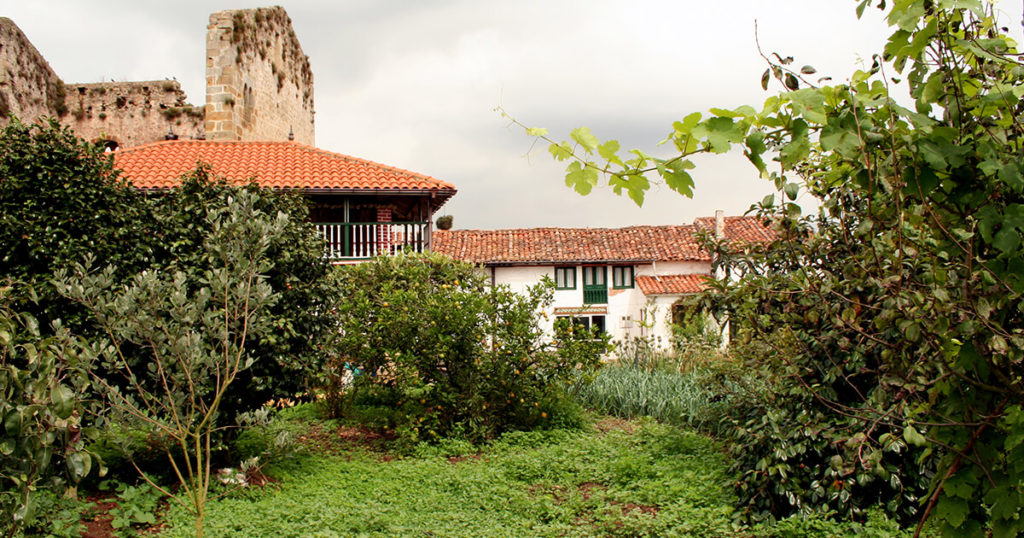
The land I live on, bigger than a plot but not as grand as an estate, is called a finca, a piece of property. Any field is a finca, or any patch of forest, any farmhouse with a history, any orchard. The address for the finca, Camino del Curiosu, translates to something like “The Curious One’s Lane.” Unless you want to translate it as “The Handy One’s Lane,” using another common meaning for curiosu, which is the Asturian version of curioso. Either way, an interesting name for a street, but more interesting if you were present on a lazy summer afternoon some 25 years ago, when my father-in-law on his way to the finca, which then had just an old barn on it with an old, crumbling house attached and a raised storehouse in the yard, stopped at the neighbors’ to say hello.
The neighbors had once lived on the finca as tenant farmers, the crumbling house had been their home, and the name on the gate was Casería del Curiosu, the homestead of el Curiosu. Years had passed since they’d built their own house on their own adjoining finca, abandoning the casería, which was by then a ruin. This neighbor, el Curiosu, the paterfamilias, after talking over his fence to my father-in-law, decided to accompany him another 200 yards to the old home. There the two old men, both about 80, sat in the shade under the wooden storehouse, a box on pillars called an horreo, and traded stories.
They talked about the past, which at their age was a wide field, and they covered a lot of it. Who had been where in the Civil War, who had seen more since, who had worked harder, and who had suffered more and held up better. Whose aches and pains were the more serious. The leisurely talk was a mix of one-upmanship, sympathy, and scorn between these two men, both dressed in worn, loose clothing, both grizzled, one a man who had labored at farm work all his life, and the other a man who had never labored at anything, at least in the eyes of his companion, for whom he was still an hijo de papá—privileged dandy.
The neighbor had been something of a dandy himself. “Yes,” he said, and slyly mentioned from deep in the sofa’s grungy cushions and sagging springs, that the nickname el Curiosu wasn’t due to a questioning mind (which he had, he said) or an ease with both minuscule and grand repairs (which he had) but for the good-looking fellow he had been. “Yes,” he affirmed. “In my day I made heads turn.” He shifted and pressed one hand over the other on his walking stick.
The man was heavy, old, stiff with rheumatism. He hobbled on a cane, had no hair, and most likely had no teeth either. A moment before, talking of his ailments, and the way life had changed, he had been doleful, but at the memory of preparing for a Saturday night dance, his eye glinted. “Es cierto,” it’s true, he said, holding up his hand like a slab of wood, fingers thick and pale, and I didn’t doubt it. No one disbelieved him. Not the young people listening, not the baby staring, not the dogs scratching fleas, and not the other old man, lounging beside him. And when he smiled again, it wasn’t at the memory of a tractor repair or an idea that had engaged him, but something else he was remembering. Or was it? The things I could do with these hands, he murmured. His eyes crinkled in pleasure.

